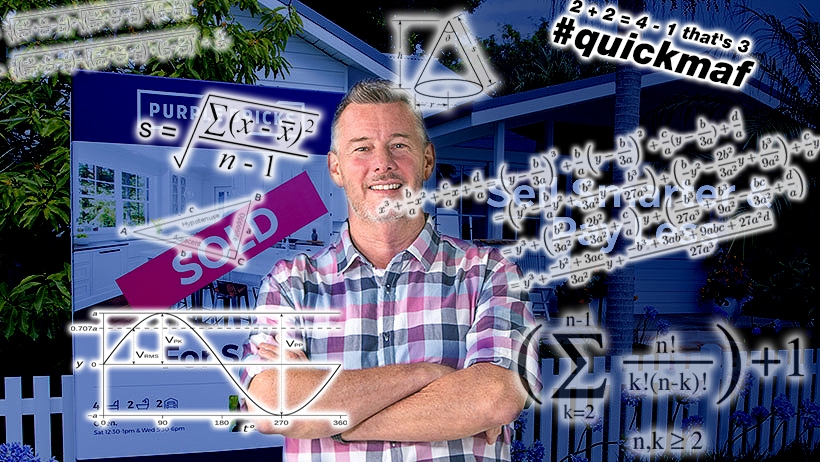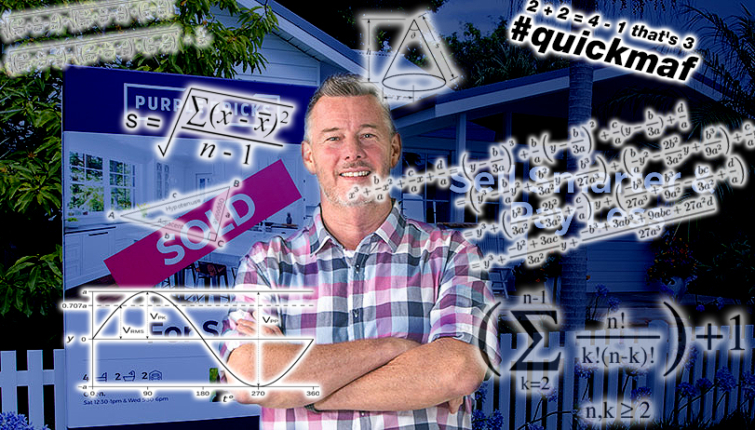Dear Barry
The C bomb. Commission. There, I said it.
For homeowners and property sellers, a real estate agent’s commission has never been as scrutinised as it is in 2019. Disruptive models are entering most facets of our lives, and in the majority of instances, their existence is meant to make our lives easier. Most do.
Social Media v traditional media. Uber v taxis. Air BnB v hotels. Artificial Intelligence v Support staff. Spotify v radio… the list goes on.
Undoubtedly, the majority of these disruptors are successful because they provide a different, or ‘better’ user experience. That is to say, the user benefits from the model. The model makes life easier.
Keeping this user experience in mind, any change to the way in which we sell houses would have to provide a benefit.
Purplebricks, for example, is one of a long line of ‘flat fee’ disruptors in the real estate space. They are not the first, and certainly won’t be the last.
There will also always be traditional agents who cut their commission to hold market share (1% fees instead of 3% fees, as an example). I think there’s merit in talking about the commission structure for both, which I will cover off on shortly.
To be clear, my only reason for bringing up Purplebricks is because they’re very topical right now. Spearheaded by Barry Du Bois, familiar across Australian television screens as the host of Channel 10’s lifestyle program The Living Room, the company is spending up big on a very aggressive, controversially worded television, radio and social media campaign to deliver the following message:
“Real estate’s changing. Compare Purplebricks to an old fashioned “commission collector”: Purplebricks have expert agents that get great results, but for a fair, fixed fee… So what’s the difference? The commission collector takes a massive chunk of your sale price – does that sound fair? Sell smarter, and pay less with Purplebricks.”, proclaims Barry.
Is it that simple?
In paying any agents’ commission, first and foremost you should be paying for an expert negotiator. Someone who is at the top of their game, has the record to prove it, and who you know has everything to gain and prove from selling your home for the highest possible price in any given market. That person must also have a database of buyers and contacts to leverage in your advantage. Ideally, they will have a team of people working to market, show and sell your home. Impeccable photography, brilliant copywriting, creative Social Media. They should also be experts in styling, landscaping, dabble in psychology and practice Zen Buddhism. In terms of what a traditional agent vs a disruptive model agent might offer, for the sake of the exercise I’ll call this one a wash, and assume that in all instances, we have a level playing field.
That being said, you mustn’t treat the sale of your home lightly. It is the sale of the most valuable asset that 99% of people will ever own or sell. Getting the absolute best result is critical, and can be the difference in whether you can truly afford that upgrade, whether you have to get a bigger mortgage than expected, or whether you end up staying put because you’ve chosen so poorly that your home never had a chance in hell of selling for the price you were promised.
Real talk: Who you choose to represent the sale of your property can have a profoundly life changing result, good or a bad. That sounds dramatic, but I’ve seen both outcomes.
So, do you pay a flat fee up front, go with a cheap agent, or do you incentivise your agent with a percentage of the eventual sale price?
Do you remunerate an agent before the property has sold, or do you remunerate them only after they sell your house? How about you, personally? Would you do a better job at anything in your life if you knew it would increase the reward?
It is my experience over 20 years in the industry that a traditional agent who discounts their fee does so for a reason. They will insist that they have lower overheads and that they pass that saving on to you. Nice line. Newsflash: If they could charge more, they would. If they can’t demonstrate and validate their own value with conviction, how do you expect them to demonstrate and validate the value of your home with conviction?
Let’s (very) conservatively suggest that an incentivised agent can add just 5% to the eventual sale price of a home whilst charging 3x the fee of a cheaper alternative, whilst also charging a marketing levy:
1% fee on a $1,000,000 sale (+ free marketing) = $10,000 agent fee.
$1,000,000 – $10,000=
$990,000 to the owner.
—–or—–
3% fee on $1,050,000 sale (+ $5k marketing) = $36,500 agent fee.
$1,050,000 – $36,500=
$1,013,500 to the owner.
$1,013,500 – $990,000 = $23,500.
This seller is +$23,500 better off despite paying 3x as much in commission AND $5k in marketing!
If you price your home right, you’re a chance at selling. If you choose the right agent, you’re a chance at selling for an exceptional price.
There are great agents in every category of our industry, but you mustn’t simply focus on the saving. You owe it to yourself to work out the potential loss. The cheapest agent is the one who gets you the highest price. Employ the best negotiator, regardless of fee… it’s too expensive not to.
Sincerely,
An old fashioned commission collector.


